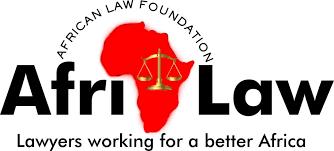In his desire to see a well-positioned private security sector in Nigeria, Mr. Fred Nwogu of the New Nigeria Foundation has called on the federal government to take steps towards setting up a commission to oversee the private security sector in the country as obtainable in other climes.
Nwogu who made this call as a panelist at a forum in Lagos recently tagged, “Private Security Governance Forum for South-West Zone”, organized by the African Law Foundation (Afri Law) with support from the Geneva Centre for Security Sector Governance, stated that there could be a commission that could take on this assignment as against the current trend where the training and monitoring of the activities of the private Security companies were being done by the Nigeria Security and Civil Defence Corps (NSCDC).
“For instance, we have a Police commission, you have the military, they have their own organization but we don’t even have that in private security sector. So, if they talk about standardizing and operating security, we can also practice what other countries are doing.
“Like in South Africa, there is a Private Security Commission, I understand that Kenya has one; the Unites States of America has the same thing. The American private security sector employs over 300,000 people. I am not sure that the employment capacity of the Federal Republic of Nigeria is up to 360,000. I don’t know but if it is not, it means that the Private security sector alone in America has an employment capacity that is equaled to that of the federal government of Nigeria. So, that is the kind of sector we are talking about”, he said.
Speaking on funding the private security sector, Mr. Nwogu regretted that one of the challenges the sector was facing was the payment of peanuts in the sector saying, “and when I talk about payment of peanuts, please don’t misunderstand me. I am not talking about what the companies pay their staff, no! Because the companies pay their staff what is available to them but we are talking about those who even employ the companies to do the work. What do they pay them?”
“So, there is a value issue in the sector. Is there a value? Can we decide as a country to give the private security sector a value because we are contributing something important? The day we attach a substantial value to the sector, it will also change by those who pay them and pay other people. So, there is a value issue in terms of valuing their work, valuing their contributions”, he added.
On governance in the sector, he said, “The regulators want the sector to be regulated and currently, the NSCDC is the regulator of the sector. With the nature of their job which what they are training the private security sector for, there is the use of force and for us in the civil societies, we want to understand to what extent should use of force be applied. The private security companies and their personnel, from our observations and studies, may not be directly involved in the use of force but many time, for instance, those who guard the embassies, those who guard the oil companies who are private security operatives, they may not be directly involved in the use of force but they are usually attached to those who can exert the force.
“So, the current security sector, from the civil societies end, we must also bring to the fore now, what their experience and the regulations are as well as how they are applied concerning use of force. I am not sure the NSCDC started with use of weapons but as the society evolves, it becomes apparent that for them to do the kind of job that they are cut out to do, there has to be use of force.
“Migration issues, movement of personnel even within the sector, wherever a Policeman is, wherever a soldier goes to, wherever an official of the Nigerian Navy goes to, there is a record that he has gone to the place. But if a guard leaves now to be a guard in V/I, we have no trace of that personnel. So, those are the issues we can put together in terms of standardizing and improving regulations in the sector.”
Send your news, press releases/articles to augustinenwadinamuo@yahoo.com. Also, follow us on Twitter @ptreporters and on Facebook on facebook.com/primetimereporters or call the editor on 07030661526, 08053908817.

